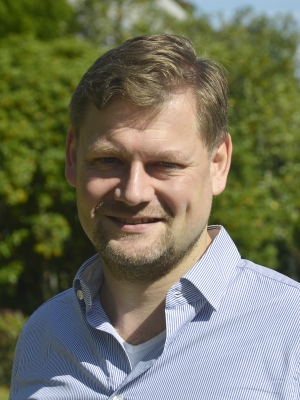Several countries have announced major fiscal and related policy packages to rebuild their economies after the pandemic. Emil Evenhuis, Neil Lee, Ron Martin and Peter Tyler explain why such programmes must be targeted towards improving the economies of lagging regions and left behind places, and the labour market position of disadvantaged social groups.
As the COVID-19 pandemic continues to rage, countries around the world are facing a daunting conjunction of crises. The pandemic, like the global financial crisis of just over a decade ago, has served to further expose and intensify longer-term systemic problems in global capitalism that have been developing since the 1980s.
Two of these problems are a slowing down in the underlying trend rate of productivity growth in many advanced economies, and at the same time a rise in economic and spatial inequality within those economies. These twin problems have increasingly attracted the attention of governments and policy-makers. And rightly so, for they threaten the very legitimacy of capitalism as an economic system capable of generating a rising standard of living which benefits all members of society to a greater or lesser degree. A new set of studies in the Cambridge Journal of Regions, Economy, and Society explores the challenges of restoring productivity growth whilst pursuing a post-COVID recovery to more socially and spatially inclusive economy.
The secular slowdown in productivity growth has affected most advanced economies (see Figure 1). Although both the precise timing and severity of the downward trend varies from country to country, the fact that the slowdown is widespread suggests some common systemic causes have been at work. Debate continues as to what those causes might be, and hence over what sort of policies are needed to improve productivity advance. There is also growing discussion over how best to measure ‘productivity’ over the need to widen its definition in order to fully capture the creation of value in its most meaningful sense. Rethinking the meaning and measurement of ‘productivity’ is itself a pressing issue for academics and policymakers alike.
Note: Fourth Order Polynomial trend lines fitted to annual rates of growth of output per person employed. Source of data: Conference Board Total Economy Database.
At the same time, a widening of economic inequalities has been taking place within advanced economies. This is especially true for the United States. In the US, the bottom 50% of incomes accounted for 19.9% of total income in 1980; in 2018, this was reduced to 12.5%. In this same period, the top 10% of incomes saw its share rise from 34.2% to 48.0%. In Europe, the trends for this time frame are overall less stark but still perceivable: for the bottom 50% the share went from 24.5% to 21.3%; and for the top 10% from 28.4% to 33.9%. There are, however, some variations between European nations, with greater increase of income inequalities in the United Kingdom than elsewhere in Europe. These rising inequalities also have a clear spatial dimension, as disparities between regions within advanced economies have increased considerably (Figures 2 and 3), creating a geography marked by a select number of ‘superstar’ cities / city-regions and a multitude of ‘left-behind places’.
 Note: Fitted trend is Third Order Polynomial. Source of data: US Bureau of Economic Analysis.
Note: Fitted trend is Third Order Polynomial. Source of data: US Bureau of Economic Analysis.
 Note: Regional shares of national gross valued added, NUTS1 Regions. Germany refers to West Germany up to 1990, and to the united Germany after 1990 (hence there is a discontinuity in this series). Source of data: Cambridge Econometrics and Office for National Statistics.
Note: Regional shares of national gross valued added, NUTS1 Regions. Germany refers to West Germany up to 1990, and to the united Germany after 1990 (hence there is a discontinuity in this series). Source of data: Cambridge Econometrics and Office for National Statistics.
There are a number of possible underlying factors that lie behind these changes, including the diminishing role of organised labour, segmentation of the labour market favouring workers who have played a key role in financialisation, together with the increasing polarisation within societies between workers who possess certain skills and those who do not. And, crucially, the role of increases in the monopolistic power associated with high-tech sectors and particularly the social media platform businesses, combined and reinforced by financial concentration and rent-seeking behaviour.
An intriguing question is whether the slowdown of productivity and widening economic inequalities are interrelated. Is the slowdown in productivity growth a cause of the widening of such inequalities? That is, is the overall slowdown in productivity growth linked to a divergence in the development of the productivity across different production factors and different economic activities? Or is the increase in income and wealth inequalities instead a factor in the lack of productivity growth? Is there an increasing mismatch between the rewards someone obtains and their actual productivity, and do the increasing concentrations of corporate power and financial muscle act as impediments to economic dynamism and investment in value-enhancing activities (rather than rent-seeking and value extraction)?
A long-held view in economics has been that greater social (and spatial) equity and national efficiency (growth and productivity) cannot be achieved simultaneously – that a policy ‘trade-off’ exists between the two. But the policy task of rebuilding from the COVID-19 crisis challenges such trade-off thinking, and highlights both the opportunity and the necessity of focusing fiscal and other public measures so as to rebuild more inclusively, socially, and spatially to tackle the inequalities exposed by the crisis. The task is not simply to rebuild ‘back’ better – that is a rather unambitious aim – but to rebuild forward better, towards an inclusive model of economic growth and development.
The idea of Inclusive Growth – a concern with both the pace of growth and equity of its distribution – has become increasingly important over the past decade. Taken up by international organisations from the OECD to the World Economic Forum, the term has also become important amongst national and local policymakers. It actually represents a departure from the traditional view of ‘grow first, (re)distribute later’, and aims to realise the objectives of growth and equity simultaneously. Inclusive Growth has become one of the most widely, if erratically, used concepts in economic development. Inclusive Growth is, however, a classic ‘fuzzy concept’. Its strength is that it is politically appealing (few people oppose such vague and positive terms as ‘inclusion’ or ‘growth’). But what precisely the term means, by what metrics it should be measured, and what policies are needed to achieve it, over what time horizon, are all issues that require much more discussion and consensus.
And there is an urgency to this task. Several countries have announced major fiscal and related policy packages to rebuild their economies out of the COVID-19 crisis. For example, the US has committed a $1.9trilion American Rescue Plan and a $2trillion Infrastructure Recovery Plan, while the European Commission has committed a €1.8 trillion Recovery Plan. These are truly massive spending commitments, and signal a shift to a more activist state than that which has held sway over the last four decades or so. There are promises to rebuild around a green net-zero carbon agenda, to upgrade physical and technological infrastructures, and to improve health care provision. What is also vital is that such programmes are targeted to improve the economies of lagging regions and left behind places, and the labour market position of disadvantaged social groups; in other words, that they have inclusive growth at the heart of their mission. Should policy-makers fail to drive forward a more equitable model of economic growth and development, it will be at their peril. As the electorates in left-behind places have already shown, social discontent is not far below the surface of the political landscape: high levels of inequality can disrupt the very nature of democracy.
It is crucial that states refrain from seeking to claw back their promised high levels of recovery spending by means of another phase of austerity of the sort that followed the global financial crisis. Austerity merely exacerbates social and spatial inequality. How states build back their economies, and how they plan to cover the huge costs involved are therefore key issues that will shape our societies and economies over the coming decade and more. We have an opportunity to rethink how value is created and distributed, how to reconcile and successfully pursue productivity (more widely defined) and socio-spatial inclusion. simultaneously. Let us hope that states will prove up to the challenge
______________________
 Emil Evenhuis is Researcher within the Department of Urbanisation and Transport of PBL Netherlands Environmental Assessment Agency.
Emil Evenhuis is Researcher within the Department of Urbanisation and Transport of PBL Netherlands Environmental Assessment Agency.
 Neil Lee is Professor of Economic Geography in the Department of Geography and Environment at the LSE.
Neil Lee is Professor of Economic Geography in the Department of Geography and Environment at the LSE.
 Ron Martin is Professor of Economic Geography in the Department of Geography at the University of Cambridge.
Ron Martin is Professor of Economic Geography in the Department of Geography at the University of Cambridge.
 Peter Tyler is Professor in Urban and Regional Economics in the Department of Land Economy at the University of Cambridge.
Peter Tyler is Professor in Urban and Regional Economics in the Department of Land Economy at the University of Cambridge.
Photo by Benigno Hoyuela on Unsplash.








